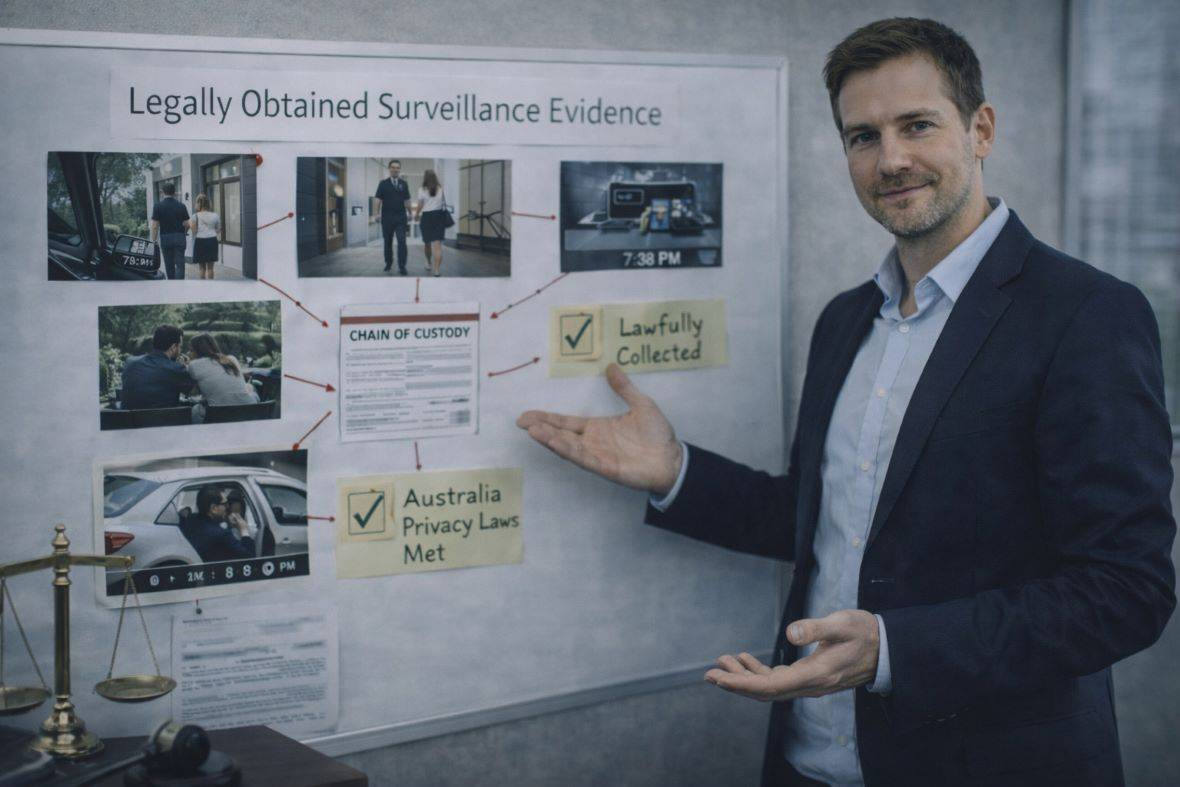Introduction to Workplace Investigation Process

Navigating the intricacies of the workplace can be challenging, especially when disputes or allegations arise. That’s where the Workplace Investigation Process in Australia comes into play. It’s a thorough, systematic, and transparent way to address potential issues, ensuring fairness to all parties involved.
What is Workplace Investigations
Understanding the Workplace Investigation Process is vital for both employers and employees. It clarifies how issues like harassment, misconduct, and safety violations are addressed. Organizations use comprehensive processes to examine allegations or suspicions of workplace misconduct. Ensuring a safe, compliant, and ethical working environment is the primary reason behind these investigations.
Different Types of Workplace Investigations
In today’s complex working environments, workplace investigations have become essential for maintaining integrity, safety, and respect within organizations. Let’s delve deeper into the various types of workplace investigations.
Harassment Investigations
Harassment investigations focus on allegations related to unwelcome behavior, such as bullying, discrimination based on race, gender, age, disability, sexual orientation, and other offensive behaviors. Here is why it’s important:
- Ensuring a Respectful Environment: A workplace should be a haven where everyone feels respected and valued. Harassment investigations reaffirm a company’s commitment to this principle.
- Legal Compliance: Many countries have laws that protect individuals from workplace harassment. Addressing these issues proactively helps organizations stay compliant and avoid legal complications.
- Protecting Company Reputation: Ignoring harassment claims can tarnish an organization’s public image. Conducting thorough investigations showcases the company’s dedication to a harmonious workplace.
Fraud and Misconduct Investigations
These investigations revolve around allegations of dishonesty, embezzlement, financial irregularities, data breaches, and other deceptive practices that employees might engage in. Why It’s Important:
- Financial Health: Undetected fraud can cause significant financial losses. Identifying and addressing it promptly safeguards the company’s financial health.
- Upholding Ethical Standards: A company’s integrity is paramount. By investigating misconduct, organizations reiterate their commitment to ethical business practices.
- Stakeholder Trust: Stakeholders, including investors, partners, and clients, need assurance that the company operates transparently. Addressing fraud and misconduct fosters this trust.
Safety and Health Investigations
Such investigations are launched when health and safety standards are potentially violated. This could range from equipment malfunctions and hazardous material exposures to potential violations of COVID-19 protocols. Why It’s Important:
- Employee Well-being: Employees have the right to work in a safe environment. These investigations ensure their physical and mental well-being.
- Legal and Regulatory Compliance: Numerous regulations mandate strict adherence to safety protocols. Regular investigations ensure organizations remain compliant.
- Operational Continuity: Addressing safety concerns proactively minimizes disruptions, ensuring smooth business operations.
Workplace Investigation Process
The workplace is a melting pot of diverse personalities, roles, and responsibilities. When disputes arise, or misconduct is suspected, a systematic approach to uncovering the truth is essential. Here’s an expanded look at the detailed steps involved in the process of workplace investigations:
Initial Complaint
This phase marks the inception of the formal investigative process. An individual, be it an employee, supervisor, or external stakeholder, raises a concern regarding a potential issue in the workplace. Its importance is:
- Acts as a Catalyst: The initial complaint sets the wheels of the investigative process in motion.
- Documentation: Formalizing the complaint ensures a record, which is crucial for transparency and safeguarding the rights of all parties involved.
Selection of the Investigator
An appropriate investigator is chosen based on the nature and severity of the complaint. Depending on the situation’s complexity and sensitivity, this could be someone from within the organization, like a human resources professional or an external third-party expert. Its importance is:
- Neutrality: An unbiased investigator ensures the investigation’s integrity and fairness.
- Expertise: Complex issues may require specialized knowledge. The right investigator will have the necessary expertise to navigate these intricacies.
Conducting Interviews
This step involves engaging with individuals who might have relevant information to the complaint. This can include the complainant, the accused, witnesses, and even experts who can provide context. Why it is essential:
- Multiple Perspectives: Every story has multiple sides. Interviews ensure all voices are heard, fostering a comprehensive understanding of the situation.
- Clarification: They help clarify ambiguities, ensuring the conclusions drawn are well-informed.
Data Collection and Analysis
What It Entails: Beyond personal accounts, investigators will gather tangible evidence related to the complaint. This could range from emails, CCTV footage, and financial records to other relevant documentation. The collected data is then meticulously analyzed to conclude. Why it is essential:
- Objective Evidence: While personal testimonies are vital, objective evidence provides a solid foundation to validate claims.
- Holistic View: Data analysis offers a 360-degree view of the situation, ensuring decisions are made based on a thorough understanding.
Challenges in Workplace Investigations
Avoiding Biases
Our inherent biases can impact an investigation. Ensuring impartiality is a challenge but of utmost importance. For example, imagine a manager having a soft corner for an employee. If a complaint arises against that employee, can the manager remain unbiased? Probably not. Hence, the selection of an impartial investigator is crucial.
Dealing with Uncooperative Witnesses
Gathering information can be hampered by silent witnesses. For example, imagine a scenario where an employee sees misconduct but fears retaliation. Assuring confidentiality and protection might encourage such witnesses to come forward.
Legal Implications of Workplace Investigations
- Ensuring Fairness: Just as one wouldn’t judge a book by its cover, every party in an investigation should be treated fairly and given a chance to present their side.
- Confidentiality Concerns: Protecting sensitive information is paramount, akin to guarding secrets.
Benefits of Effective Workplace Investigations
- A boost in employee morale
- Prevention of future incidents
- Upholding the company’s reputation
Why Hiring a Private Investigator for Workplace Investigations is Crucial
Workplace disputes and allegations of misconduct are delicate matters. They influence the immediate parties involved and have overarching consequences for an organization’s reputation, morale, and, sometimes, its bottom line. Given these implications, relying on a private investigator can be the wisest action. Let’s discuss why.
Objectivity and Neutrality
Internal teams might have biases or conflicts of interest, whether they’re aware of them or not. Private investigators, being external to the organization, can approach situations with an unbiased lens. It ensures that each case is assessed purely on its merits without preconceived notions or allegiances influencing the outcome. A neutral investigation bolsters trust in the investigative process and its conclusions among all stakeholders.
Specialized Skills and Experience
Private investigators have a wealth of experience digging deep, spotting inconsistencies, and piecing together evidence. They’re trained for this. Their expertise ensures a comprehensive probe, leaving no stone unturned. With their knowledge, private investigators ensure the investigative process adheres to all legal and ethical standards.
Confidentiality
Given their profession, private investigators understand the paramount importance of discretion and safeguarding sensitive information. Ensuring confidentiality prevents potential reputational damage for the company and individuals involved. In some cases, maintaining confidentiality might be a legal requirement, mainly concerning personal data.
Resource Availability
Unlike internal teams that might be juggling multiple responsibilities, private investigators dedicate their full attention and resources to the case at hand. With focused resources, investigations can be concluded more swiftly. Dedicated attention ensures all nuances of an issue are explored in depth.
Advanced Tools and Techniques
Private investigators often have access to sophisticated tools, databases, and surveillance techniques not usually available to an organization’s internal team. Advanced instruments enable deeper dives into matters, unearthing evidence that might go unnoticed. Modern tools and methods improve the accuracy and reliability of the investigation.
Conclusion
Workplace investigations in Australia are more than just procedures; they’re a testament to an organization’s commitment to fairness, safety, and transparency. By understanding its importance, types, processes, and benefits, we can appreciate the lengths organizations go to ensure a harmonious working environment.
Triumph Australia stands as a beacon of trust and professionalism for those looking for premium investigative services. Specializing not just in workplace investigations, we have a proven track record in fraud investigations and comprehensive background checks. Our expertise isn’t just limited to Triumph Australia. Our sister company, Sydney Private Investigations, also offers premier services, excelling in background checks and providing top-tier surveillance solutions. When you partner with us, you’re not just getting an investigator; you’re acquiring a dedicated ally in the pursuit of truth and clarity.









